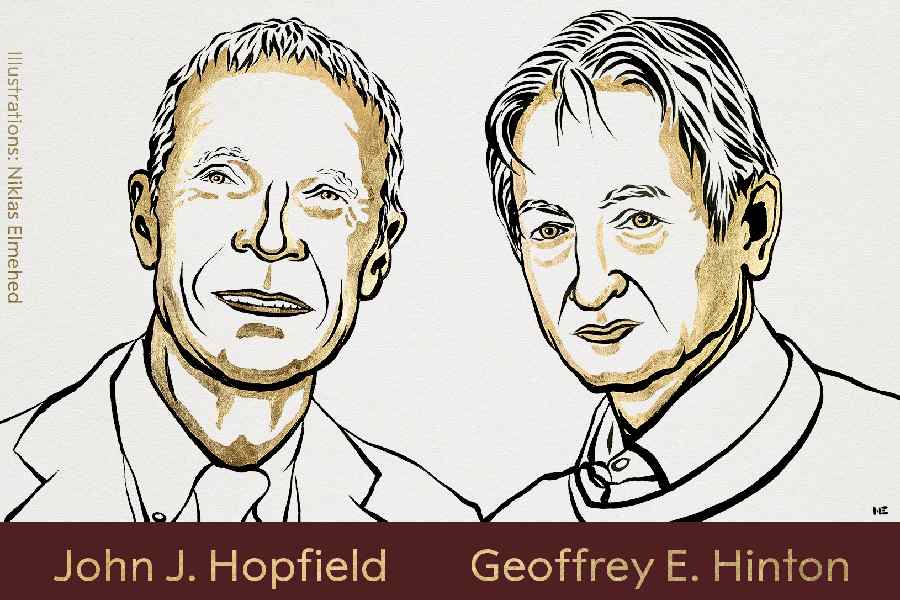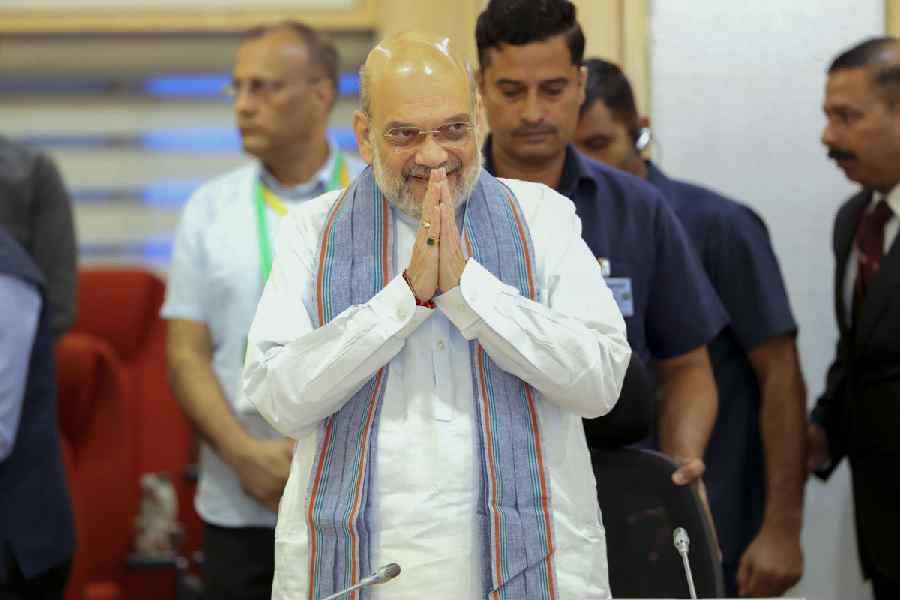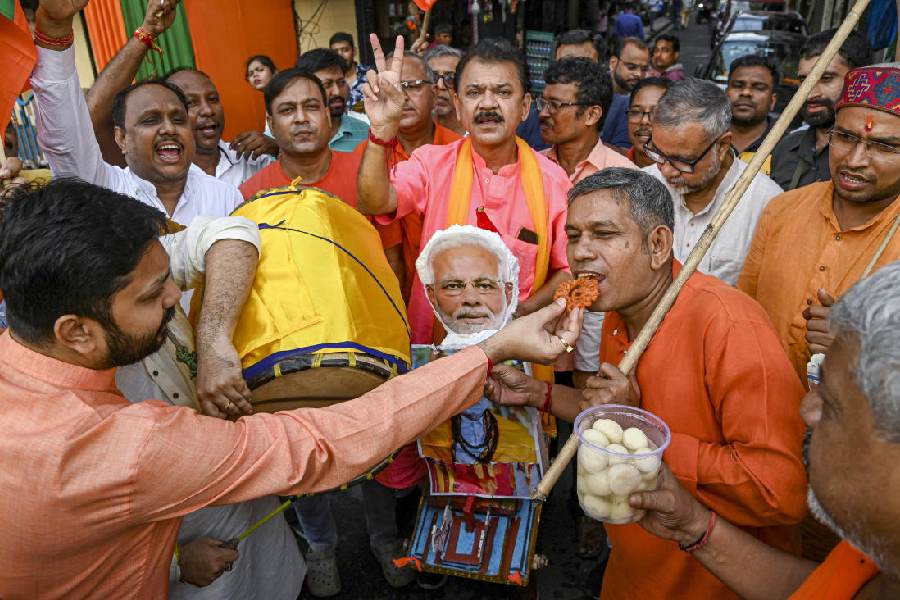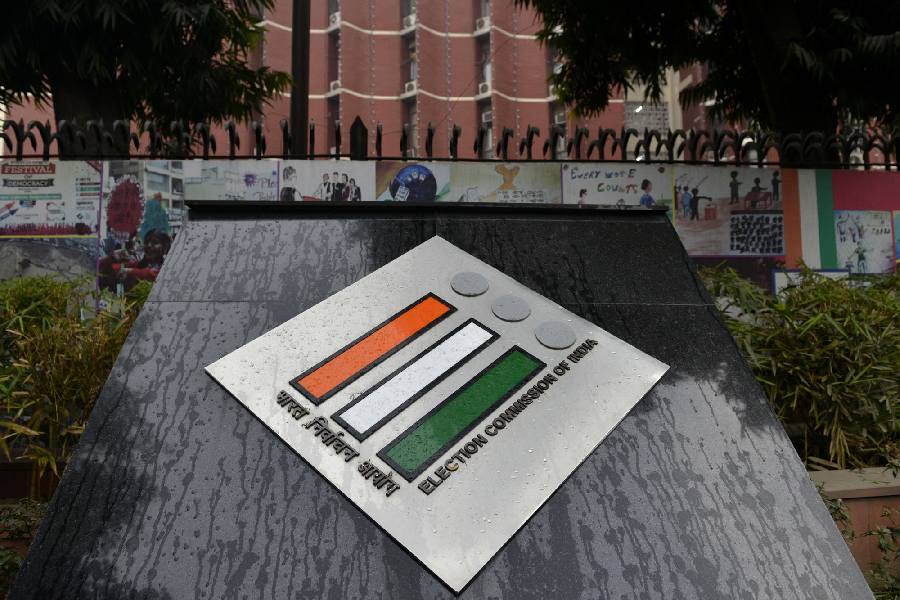U.S. scientist John Hopfield and British-Canadian Geoffrey Hinton won the 2024 Nobel Prize in Physics on Tuesday for discoveries and inventions in machine learning that paved the way for the artificial intelligence boom.
Heralded for its revolutionary potential in areas ranging from cutting-edge scientific discovery to more efficient admin, the emerging technology on which the duo worked has also raised fears humankind may soon be outsmarted and outcompeted by its own creation. Hinton has been widely credited as a godfather of AI and made headlines when he quit his job at Google last year to be able to more easily speak about the dangers of the technology he had pioneered.
"We have no experience of what it's like to have things smarter than us," Hinton said over the phone to the Nobel press conference, speaking from a hotel in California.
"It's going to be wonderful in many respects, in areas like healthcare," Hinton said. "But we also have to worry about a number of possible bad consequences. Particularly the threat of these things getting out of control."
Hopfield, 91, a professor emeritus at Princeton University, created an associative memory that can store and reconstruct images and other types of patterns in data, said the Royal Swedish Academy of Sciences, which awards the prize.
"This year's two Nobel Laureates in physics have used tools from physics to develop methods that are the foundation of today's powerful machine learning," the academy said in a statement.
"Machine learning based on artificial neural networks is currently revolutionising science, engineering and daily life."
The award comes with a prize sum of 11 million Swedish crowns ($1.1 million) which is shared by the two winners.
British-born Hinton, 76, now professor emeritus at the University of Toronto, invented a method that can autonomously find properties in data and carry out tasks such as identifying specific elements in pictures, the academy said.
Though he quit Google in 2023 after realising computers could become smarter than people far sooner than he and other experts had expected, Hinton said the company itself acted very responsibly.
Hinton also said he regretted some of his research, but that he acted on the information he had at the time.
"In the same circumstances I would do the same again," he told the Nobel press conference. "But I am worried that the overall consequence of this might be systems more intelligent than us that eventually take control."
'MIND FROM MACHINE'
Asked about the concerns surrounding machine learning and other forms of artificial intelligence, Ellen Moons, chair of the Nobel Committee for Physics, said: "While machine learning has enormous benefits, its rapid development has also raised concerns about our future.
"Collectively, humans carry the responsibility for using this new technology in a safe and ethical way, for the greatest benefit of humankind."
Hopfield, whose parents were both physicists, said in a video posted online by the Franklin Institute when he won the 2019 Benjamin Franklin Medal in Physics that he had never considered being anything but a scientist or engineer.
"They were the ones that understood the world," he said. "What fascinates me most is still this question of how mind comes from machine." Widely considered the most prestigious award for physicists across the world, the prize was created, along with awards for achievements in science, literature and peace, in the will of Alfred Nobel.
The prizes have been awarded with a few interruptions since 1901, though the Nobel economics honour is a later addition in memory of the Swedish businessman and philanthropist, who had made a fortune from his invention of dynamite.
Outside the sometimes controversial choices for peace and literature, physics often makes the biggest splash among the prizes, with the list of past winners featuring scientific superstars such as Albert Einstein, Niels Bohr and Enrico Fermi. Last year's physics prize was awarded to Pierre Agostini, Ferenc Krausz and Anne L'Huillier for their work in creating ultra-short pulses of light that can give a snapshot of changes within atoms, potentially improving the detection of diseases. Physics is the second Nobel to be awarded this week, after U.S. scientists Victor Ambros and Gary Ruvkun won the medicine prize for their discovery of microRNA and its role in gene regulation, shedding light on how cells specialise.
The Nobel Prize in physics is being awarded Tuesday, a day after two American scientists won the medicine prize for their discovery of microRNA.
Three scientists won last year's physics Nobel for providing the first split-second glimpse into the superfast world of spinning electrons, a field that could one day lead to better electronics or disease diagnoses.
The 2023 award went to French-Swedish physicist Anne L'Huillier, French scientist Pierre Agostini and Hungarian-born Ferenc Krausz for their work with the tiny part of each atom that races around the centre and is fundamental to virtually everything: chemistry, physics, our bodies and our gadgets.
Six days of Nobel announcements opened Monday with Americans Victor Ambros and Gary Ruvkun winning the medicine prize for their discovery of tiny bits of genetic material that serve as on and off switches inside cells that help control what the cells do and when they do it.
If scientists can better understand how they work and how to manipulate them, it could one day lead to powerful treatments for diseases like cancer.
The physics prize carries a cash award of 11 million Swedish kronor (USD 1 million) from a bequest left by the award's creator, Swedish inventor Alfred Nobel. It has been awarded 117 times. The laureates are invited to receive their awards at ceremonies on December 10, the anniversary of Nobel's death.
Nobel announcements continue with the chemistry physics prize on Wednesday and literature on Thursday. The Nobel Peace Prize will be announced Friday and the economics award on October 14.










